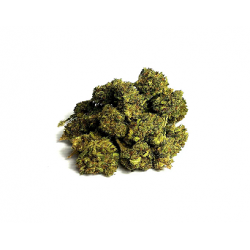
With CBD against stress! How can CBD reduce stress levels? In this article, we will talk about the effects of stress and how to reduce them. We explain why it is important to keep our stress levels low, what physics, mental effects we may encounter and how CBD can help with this. What is stress? The concept of stress
With CBD against stress! How can CBD reduce stress levels?
In this article, we will talk about the effects of stress and how to reduce them. We explain why it is important to keep our stress levels low, what physics, mental effects we may encounter and how CBD can help with this.
What is stress?
The concept of stress
A XX. century, the concept was transferred to medicine, however, stress was used in two ways. On the one hand, it reported the external conditions affecting the body (eg high temperature, strong shock), and on the other hand, the internal changes that occur as a result of these conditions.
Finally, the term most commonly used today can be linked to the name of Lazarus and Folkman (1984) that “stress is when a person perceives a burden, compulsion, or opportunity from the environment as one that exceeds his or her resources”.
Components of stress
Stressor: External forces acting on the body, conditions, dangerous environmental effects, stressful situations (eg physical injury, physical threat, psychological threat). The most important common feature of these is that they seem unaffected, we feel that they exceed our abilities and negatively affect our self-image.
Stressors can be grouped according to several aspects: whether the unpleasant, frightening event has already taken place, or will happen later, or whether we have the opportunity to deal with it.
Damage, loss: some final, irreversible stressor e.g. death
Threat: some pre-existing loss or damage e.g. feeling of constant threat of dismissal at work
Challenge: a stressor acting in the direction of the development of a person's abilities e.g. too high workplace challenges
Overall, stress has a positive or negative effect:
Distress: harmful, unpleasant, leads to physical and mental health damage in the long run
Eustress: not harmful, it can even promote development, stimulating activation with a sense of success.
Stress response: In terms of exertion, we can distinguish two main types: those related to the performance of muscle work and those related to the flow of information. There are two other forms of information burden: physiological and psychological. Some of the information that enters the nervous system becomes conscious, causing a psychological information burden. Information that enters the nervous system but is not conscious - these are in the majority - causes a physiological information load.
Physical and psychological reactions to stressors can include:
short-term effects: e.g. cortisol increase, blood glucose increase, immune response, anxiety, performance impairment.
long-term effects: The body adapts to long-term stress, however, this adaptability is finite, exhaustible. If stress persists for a long time, it can have long-term negative physical and mental consequences, e.g. (cardiovascular disease, depression, etc.)
In today’s fast-paced world, stress is already affecting people with all walks of life and society. According to a mental health study in the United States, 74% of those surveyed felt overwhelmed and unable to cope with their problems. The vast majority of people in the European Union also reported increased stress. It’s worth noting here that at the time of the survey, the pandemic only existed in movies, so the year 2020 only brought even higher levels of stress to this heightened stress situation.
The feeling is horrible in itself and is usually accompanied by physical symptoms: an accelerated heartbeat, rising blood pressure, headache, pain, loss of consciousness, stomach aches and the line could go on indefinitely. In the long run, stress can even be responsible for the development of diseases such as diabetes, cancer, depression, anxiety, insomnia, indigestion.
In this article, we will write about distress states because eustress is especially useful. Eustress initiates beneficial processes (e.g. when we are really looking forward to an event, or e.g. when we get recognition and suddenly come to the forefront.)
Relationship between the endocannabinoid system and stress
The endocannabinoid system (ECS) is a key part of our natural protection against stress! Endocannabinoid signaling is present in all stress-related areas, especially in the hypoltalmus-pituitary-adrenal (HPA) axis. This axis is basically responsible for the regulation of CORTIZOL and other stress hormones. Endocannabinoid receptors, also found in the amygdala, this area of the brain responsible for processing fear, emotions, and memories.
If the ECS successfully regulates the HPA axis and amygdala, the body can successfully cope with stress. If there is a disorder in ECS signaling, such as inflammatory conditions, then the negative effects of stress will take control and we will be vulnerable to diseases such as depression.
Can CBD provide protection against stress?
Based on research to date and reports from personal experience, it is encouraging that due to the stimulatory effect of CBD serotonin activity, anxiety and stress are directly dissolved in the brain by having a calming effect on the sympathetic nervous system. By reducing the level of anxiety, we also do a lot for our heart because it can prevent heart disease that can even be fatal.
An overactive amygdala can cause arterial inflammation, which increases the risk of heart attack! Due to the series of constant stress, the bone marrow produces extra white blood cells, which can cause inflammation and block the artery if it builds up. This is where CBD intervenes, one of the most important effects of which is the anti-inflammatory effect thus helping the body and the whole body.

Without stress?
There is no way not to be stressed. We talked above about negative and positive stress and their effects. There are many situations in life that cause negative stress, such as transportation, and there are stressful situations over which we have no effect, such as politics. It’s important to point out that the CBD can do a lot to help reduce stress levels, but you need to support that fight as well. In addition to CBD, in some cases, you can also seek the help of a stress therapist who can help unravel the lumps that are preventing you from moving forward. The first step is to consciously pay attention to these situations and give a conscious response to them (you are late, you know you are late, instead of letting your stress levels increase, rather grab the phone and signal that you will be late due to obstacles. your stress level will drop immediately.And the next time you see you start running out of time you don’t automatically stress, you just call and don’t let that level go up.)
If you feel you can’t cope with stress alone, ask for help today!
(source www.egeszseg.hu, Mary Biles: CBD Guide)
facts
The anti-inflammatory effect of CBD can reduce the risk of heart failure
Due to the anti-anxiety effect of CBD, the level of stress in the body can also be reduced
In addition to CBD, other stress-reducing activities, such as yoga, meditation, walking, are always recommended in addition to assessing an individual's mental state.


















